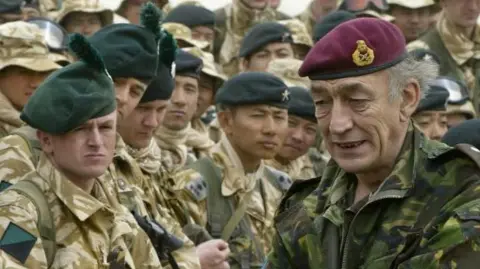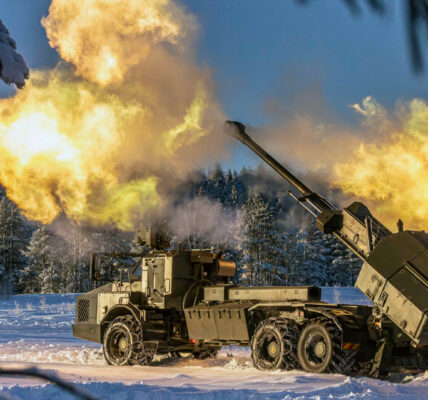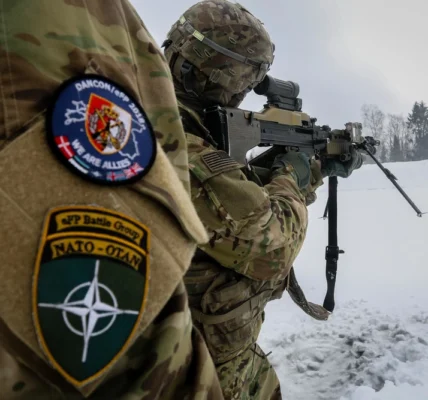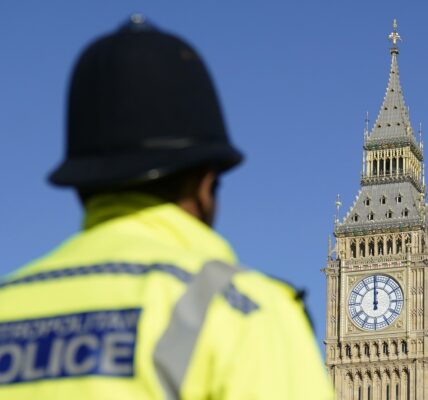
General Sir Mike Jackson, the former Chief of the General Staff and one of Britain’s most high-profile military leaders, has died aged 80. Gen Jackson was seen as a tough and uncompromising soldier, known affectionately by his troops as “The Prince of Darkness,” among other nicknames, referring to his cool manner and gravelly voice.
Despite rising to become head of the British Army, his greatest achievement might be viewed as his decision to disobey an order from a senior NATO officer in 1999 when he was commander of NATO’s Rapid Reaction Corps in Kosovo. During the campaign, while commanding 40,000 NATO Kosovo Force (KFOR) troops, Gen Jackson had been given a direct order by U.S. General Wesley Clark to block the runways at Pristina Airport and isolate Russian forces. But he famously told Gen Clark, his immediate superior in the NATO chain of command: “I’m not going to start the Third World War for you.” Instead, he met the Russian commander and bonded over a bottle of whisky. He assigned a unit of elite British pathfinders commanded by his son Mark to protect the Russian contingent.
I first met Gen Jackson in 1989 when I was a young captain in Northern Ireland and he was the commander of 39 Brigade. By that stage, he had already acquired an almost legendary status as a great leader and drinker within the Parachute Regiment. Our paths crossed again in 2003, by which time I had become a journalist and he had risen to the head of the British Army.
At the end of the interview, in an off-the-record session, he revealed that he thought the best way for the coalition to win the peace in Iraq was to use the Iraqi Army to police the country after the Iraqi leader Saddam Hussein had been removed from power. Such a strategy never materialised due to the U.S. policy of De-Ba’athification, which attempted to remove the Ba’ath Party’s influence in the new Iraqi political system after the U.S.-led invasion.
Never one to shy away from controversy, Gen Jackson was also the first senior Western military officer to publicly admit in 2004 that the U.S. and the U.K. were back at war in Iraq just months after President George Bush had declared “mission accomplished.” We met again a year later after I had been given a leaked Executive Committee of the Army Board document from a confidential source, which set out a series of controversial defence cuts. The document revealed that some of the most famous and historic British infantry regiments were due to be amalgamated, ending hundreds of years of military history.
My editor at the time insisted that I personally inform Gen Jackson that The Sunday Telegraph was planning to publish an article based on the contents of the document. Coincidentally, Gen Jackson and I were both attending the annual Parachute Regiment Officers’ Dinner Club that same evening. After the dinner, I approached Gen Jackson at the bar of the Victory Service Club in London and told him that I had been handed the document by a confidential source. He looked surprised at first before his face became puce with anger. “What are you going to do with it?” he growled. I took a deep breath and responded: “Publishing tomorrow, General.”
“Well, in that case, you’re a (four-letter word beginning with the letter C),” he shouted. I stood my ground and said that after being given such a controversial document, the paper had a duty to publish. Gen Mike eventually calmed down to the point where he became fascinated by how I had managed to get the document before other members of the Army Board. By the end of the evening, he had congratulated me on a great scoop. Many more lunches and meetings were to follow.
Earlier in his career, Gen Jackson was present at two significant incidents in Northern Ireland. He was a captain with the 1st Battalion of the Parachute Regiment at the time of the Ballymurphy shootings in Northern Ireland in August 1971. In 2019, he told an inquest into the deaths of 10 people in the incident that there had not been a cover-up. He was also present at Bloody Sunday in 1972 when British soldiers opened fire on unarmed protesters in Derry, killing 14.
In March 2006, he created a storm by criticising kidnap victim Norman Kember, who, he said, had not thanked the SAS soldiers who rescued him and his Canadian colleagues from their captors in Iraq. Sir Mike retired in August of that year, having held the post for three-and-a-half years. Born in March 1944, Sir Mike was educated at Stamford School and Sandhurst before being commissioned into the army as an officer in 1963. He later earned a degree in Russian studies from Birmingham University while serving in the Intelligence Corps.
The British Army said in a tribute: “It is with great sadness that we have learned of the death of General Sir Mike Jackson GCB, CBE, DSO, on October 15, surrounded by his family. “General ‘Jacko’ served with distinction for over 40 years, finishing his career as Chief of the General Staff. He will be greatly missed and long remembered.” The announcement ended with the phrase “Utrinque Paratus,” the Latin motto of the Parachute Regiment, which translates to “ready for anything.” The Parachute Regimental Association said he was a “great leader of men” who will be missed by many.


































































































































































































































































































